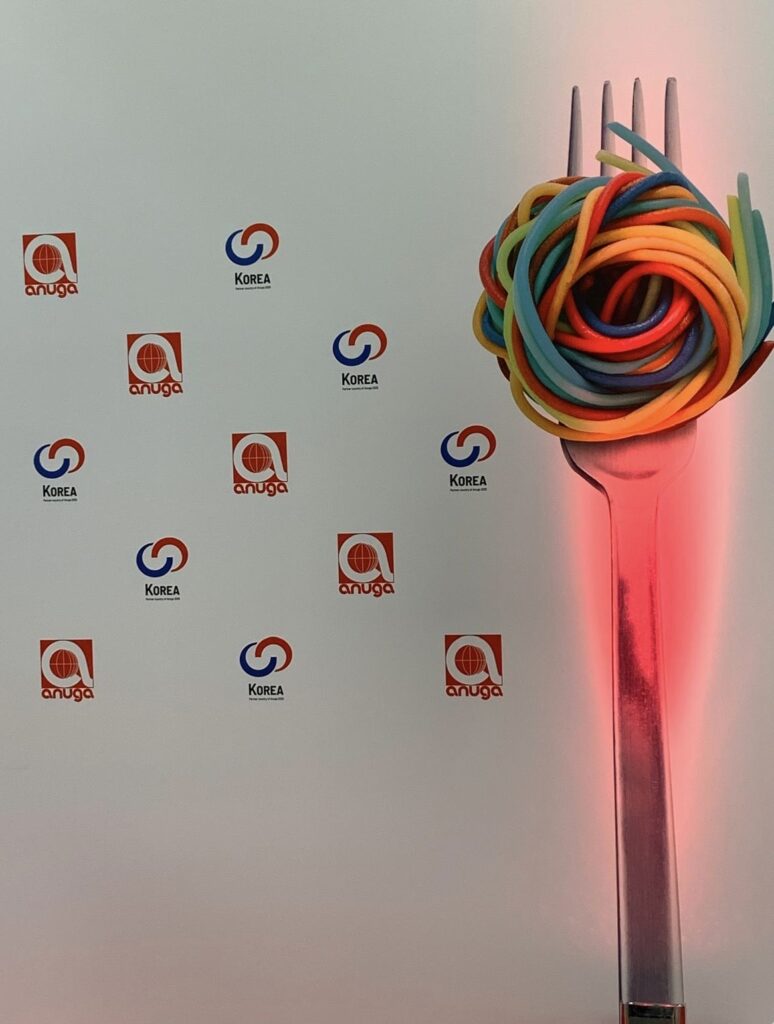
NATEEO AT ANUGA 2025: TRENDS, MEETINGS AND PROSPECTS
Once again, this year, Nateeo took part in Anuga 2025 in Cologne, the world’s leading trade fair for the food and beverage industry, taking the opportunity to meet with partners and customers and learn about the trends that will shape the evolution of the market.
One noteworthy observation was the very dynamic participation of Asian countries – Korea, China and Pakistan in particular – signalling growing competitiveness and rapidly transforming supply chains.
The common thread linking most of the proposals seen in Frankfurt is sustainability: transparency and traceability of origin, more efficient processes in the use of resources, recycling of materials and the choice of ingredients with a lower environmental impact. This is an area in which Nateeo has long been committed, undergoing independent assessments every year through three of the most authoritative sustainability ratings: Sedex, Ecovadis and SI Rating, as well as recently obtaining ISO 14001 (Environmental Management System) and ISO 45001 (Occupational Health and Safety Management System) certifications.
Clean label ingredients continue to gain ground and, at the same time, demand is growing for products designed to ensure consumer well-being: light, balanced foods, controlled portions, nutraceuticals and, above all, functional beverages with fibre, prebiotics and probiotics for the microbiome. These are applications in which emulsion, stabilisation and texture solutions become crucial in combining technological performance and sensory experience.
The snack and ready-to-go segment is showing a clear acceleration: sweet and savoury products are converging on ‘on-the-go’ formats, i.e. intended for quick consumption but offering increasingly nutritious and healthy nutritional profiles. Premium pastries and fine foods focus on refined ingredients without additives, while in dairy products the focus is on new targeted functionalities: from skin and joint protection to gut health, all without allergens.
The market for meat alternatives remains buoyant in terms of supply, but without any major shifts in raw materials: legume proteins and fermentation-derived mycoproteins still prevail. Innovation is therefore shifting towards structure, flavour, processes and communication, areas in which emulsions and functional oils help to improve yield and sensory profile.
In the rapidly growing beverage sector, functional drinks developed to promote skin health are gaining popularity, as are non-alcoholic wines and beers and increasingly specialised beverages such as tea and coffee, with new origins and roasts.
There was no shortage of concrete ideas on the frontier of ingredients: seaweed such as kelp, functional mushrooms (Lion’s Mane), adaptogens that help the body manage physical and mental stress, promoting balance and increasing resistance, such as ashwagandha (Indian ginseng), non-animal protein sources and a renewed interest in seeds and grains such as flax, rapeseed, sunflower, oats and broad beans. Much attention is also being paid to projects that combine circularity and taste, such as biscuits made with spent grain and recycled packaging, bars with Omega-3-rich seaweed, “superfood” desserts with inulin and vegetable proteins, and new protein-based interpretations of classic snacks.
What are we taking home from Cologne? Three areas to work on together with our partners: even greater sustainability and transparency throughout the supply chain, new formulations with demonstrable functionality, and technological solutions that make products scalable, offering greater well-being without compromising on safety and quality.
